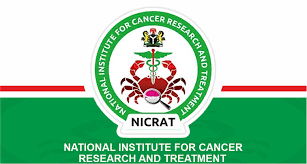Cancer is no longer a death sentence as healthcare quality and research in Nigeria continue to improve, according to the South-West Coordinator of the National Institute for Cancer Research and Treatment (NICRAT), Prof. Olusegun Alatise.
He made this known at a workshop hosted by NICRAT for oncologists, researchers, and healthcare professionals in the South-West, held Thursday at Obafemi Awolowo University (OAU), Ile-Ife, Osun State.
The workshop, focused on “Strengthening Institutional Capacity for Cancer Research and Implementation (SINCCAR),” aimed to enhance local expertise and commitment in the fight against cancer.
“We have made up our minds to stay here and fix what needs fixing. We must raise a new generation of researchers who share this vision and can drive improvements in cancer care quality across the country,” Alatise said.
He noted that NICRAT, established under the 2017 Act, leads national efforts in cancer prevention, treatment, and research, while also coordinating with medical and scientific institutions to improve outcomes.
According to him, the SINCCAR project is a long-term investment focused on reducing Nigeria’s cancer burden through institutional strengthening, targeted education, and research funding.
“As Nigeria charts a future in which cancer is no longer a death sentence, efforts like SINCCAR offer a glimmer of hope and a roadmap for action,” he added.
Also speaking, Dr. Nwamaka Lasebikan, Director of Research and Innovation at NICRAT, said the current phase of SINCCAR is addressing specific institutional weaknesses.
She explained that the programme involves assessing institutional capacity, providing training across Nigeria’s geopolitical zones, and issuing grants to support cancer research initiatives.
“The initiative is not merely academic, but a bridge between research and real-life public health interventions,” she stated.
Lasebikan noted that Nigeria, with over 220 million people, faces a rising burden of non-communicable diseases, especially cancer.
Citing the 2022 International Agency for Research on Cancer (IARC) report, she said nearly 128,000 new cancer cases are recorded in Nigeria each year, with prostate, colorectal, and liver cancers prevalent among men, while breast and cervical cancers remain top threats for women.
She said NICRAT is determined to build capacity among South-West researchers as part of a nationwide effort to combat cancer through research and institutional empowerment.
(NAN)


